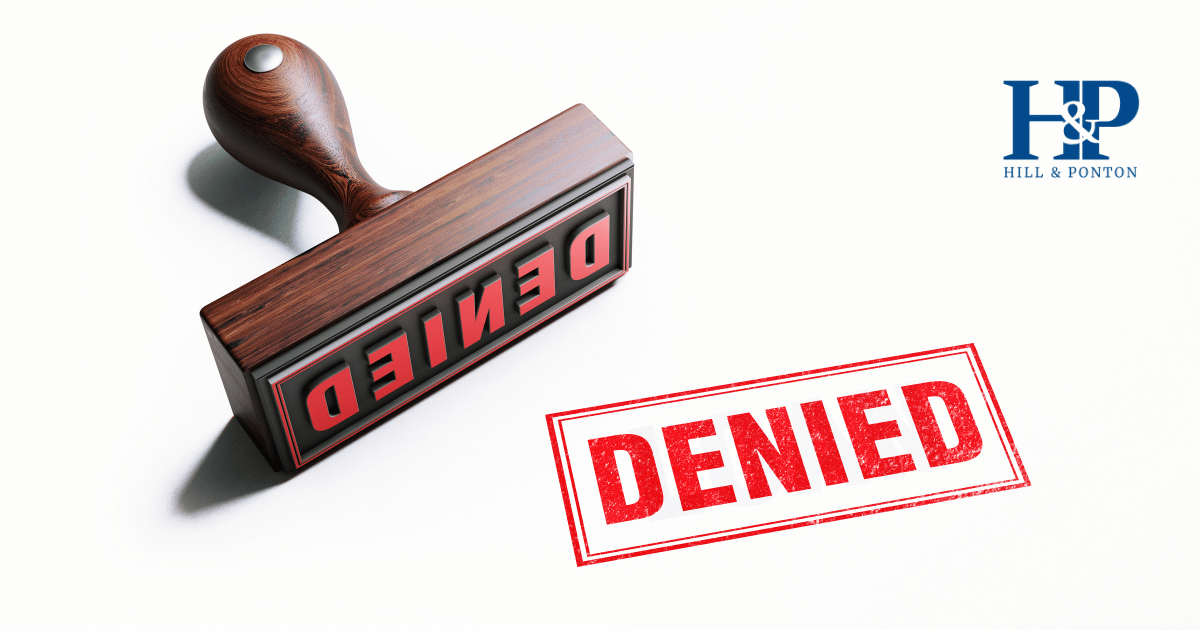Struggling with a VA denial? Don’t worry—you’re not alone. This guide will walk you through the steps to understand your denial, gather the right evidence, and choose the best appeal path for your case. With the right approach, you can turn a denial into an approval.
Find Out Why
When the VA denies a claim, the reasons are often hidden in the details. Taking time to understand the denial is the first step to building a stronger case.
Your first step will be to review your denial letter. The VA’s denial letter is more than just bad news — it’s a roadmap. VA is required to tell you why a claim was denied. Under each condition that was denied, look for specific reasons such as “insufficient medical evidence” or “no diagnosis.”
These details provide vital clues for identifying what’s missing and how to address it in your appeal.
- Insufficient Medical Evidence: The VA needs clear documentation to confirm your diagnosis and its severity.
- Lack of Medical Nexus: The VA found no definitive link between your condition and your military service.
- Inadequate Proof of Disability: The VA may believe there’s insufficient additional evidence showing how your condition affects daily life or work.
Learn more about why your VA claim was denied.
Gather VA Disability Evidence
If your claim was denied, it often means additional evidence is required to succeed on appeal. Here’s how to strengthen your case:
- Update Medical Records: Obtain new test results, second opinions, or specialist evaluations to provide a clearer picture of your condition. If you receive treatment outside VA, make sure to collect those records or let VA know where you receive treatment – VA does not have automatic access to private medical records and must request those records.
- Build a Stronger Service Connection: Gather reports of in-service incidents, buddy statements, or other evidence linking your condition to military service. These personal accounts can help fill gaps in official records.
Examples of Evidence You Can Use
The right evidence can significantly impact the success of your appeal. Consider including:
- Service Treatment Records (STRs): Medical records from your time in service documenting injuries or illnesses.
- Private Medical Records: Documents from civilian doctors or specialists demonstrating ongoing treatment or diagnosis of your condition (e.g., X-Rays, MRI, surgery reports).
- VA Medical Records: Records from VA clinics or hospitals showing treatment history, prescriptions, or diagnoses.
- Buddy Statements: Written statements from friends, family, or fellow service members describing how your condition developed or affects your life.
- Personal Statement: Written statement from you describing how your symptoms have continued since service, the impact of the symptoms on your daily life, or “filling in the gaps” on information missing from the record.
- Employment Records: Evidence of how your condition impacts your ability to work (e.g., leave records, performance reviews).
- Medical Nexus Letter: A letter from a physician explicitly linking your condition to your military service (e.g. a specific in-service event or injury that caused a physical disability).
Providing this evidence strengthens your case and demonstrates how your condition is both service-connected and life-impacting. Learn more about evidence in our comprehensive guide here.
What To Do When You Have a Mental Health Condition
Claims involving VA disabilities like PTSD, depression or anxiety require comprehensive documentation, which can include:
- Therapist or psychiatrist records documenting diagnoses and treatment plans.
- Medical records from VA or private providers showing evaluations, medications, or therapy participation.
- Personal statements describing how the condition affects daily life (e.g., struggles with work, relationships, or basic tasks).
- Buddy statements from family or fellow service members who observed the challenges caused by your condition.
- Incident reports or documentation of traumatic events during service.
- Expert evaluations linking your mental health condition to your service.
Explore VA Appeal Options
Appealing a denied claim can feel daunting, but understanding your options simplifies the process. There are several paths to choose from, depending on the situation.
Start By Filing a Decision Review Request (DRR)
The DRR is a formal way to challenge a VA decision. Submitting it within one year of the denial keeps your claim’s effective date intact. The DRR begins the appeal process, opening the door to several appeal paths:
- Higher-Level Review: A senior VA official reviews your case for errors. This option works best if you believe evidence already submitted was overlooked.
- Supplemental Claim: Allows you to submit new and relevant evidence for reconsideration.
- Board of Veterans’ Appeals: A chance to present your case to a judge, submit additional evidence, or request a hearing. While this process can take time, it often produces meaningful results when supported by strong evidence.
Want to learn more about filing an appeal? We have a comprehensive appeal guide that will walk you through it step-by-step.
Seek Assistance
Navigating a VA denial alone can be challenging. Fortunately, there are two key support options available: Veterans Service Organizations (VSOs) and legal representation. Both offer valuable assistance, but each has unique benefits and potential drawbacks.
Here’s a breakdown to help you decide which might be right for you:
| Veterans Service Organizations (VSOs) | Legal Representation (Attorney) |
| Pros | Pros |
| Free assistance, making them accessible to all veterans. | Expert understanding of VA law and appeals processes. |
| Familiar with common VA claim and appeal requirements. | Personalized guidance for complex or high-stakes cases. |
| Help gather evidence, prepare appeals and interpret VA decisions. | Can identify errors and ensure all claim details are addressed. |
| Offer extensive experience working directly with veterans. | Increased likelihood of a favorable outcome in tough cases. |
| Often work on a contingency basis, meaning no upfront costs. | |
| Cons | Cons |
| May not be equipped to handle very complex cases or legal errors. | May involve fees if the claim is successful. |
| Limited resources can result in slower response times. | Legal processes can take longer and involve more formalities. |
- When to Choose a VSO: If your case is relatively straightforward and you need general guidance, VSOs are an excellent, cost-free option.
- When to Choose Legal Representation: For complex cases involving multiple denials or legal errors, a VA attorney’s expertise can make a critical difference in achieving a favorable outcome.
Get the Help You Deserve
Your VA denial isn’t the end — it’s the beginning of a new opportunity to secure the benefits you’ve earned. With the right strategy, evidence, and support, success is within reach.
With over 30 years of experience and more than $300 million in benefits recovered for our clients, Hill & Ponton has handled 30,000 claims, earning a reputation as trusted advocates for veterans seeking the compensation they deserve.
If you don’t know what to do and how to appeal when the VA denied your claim, contact Hill & Ponton for expert assistance.




